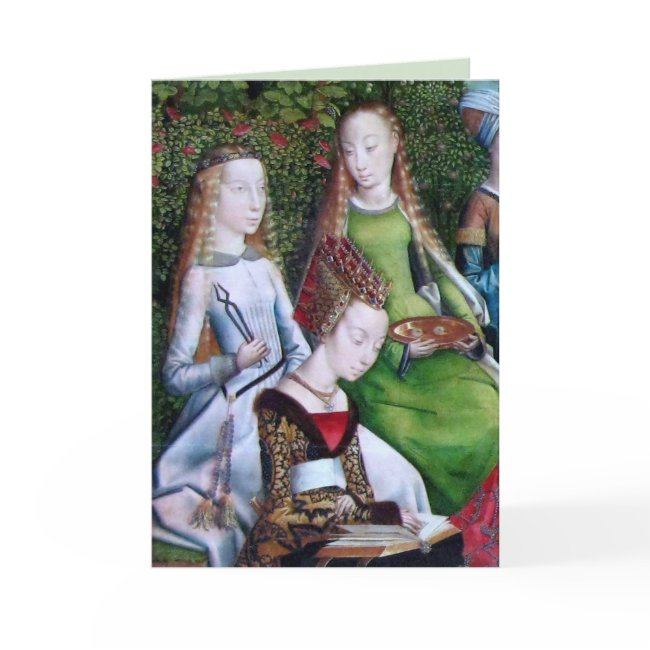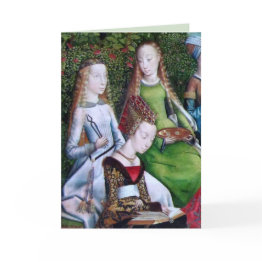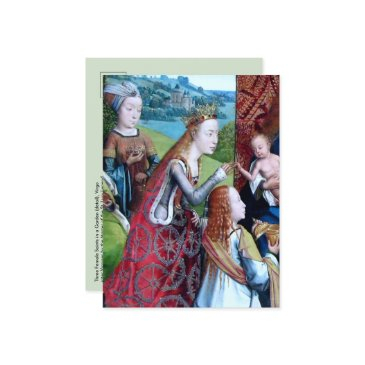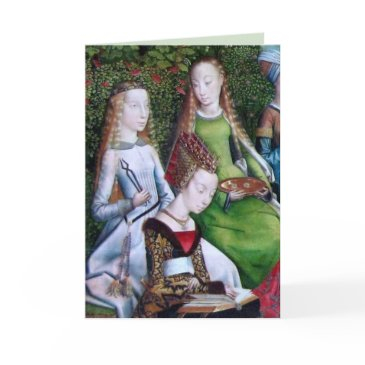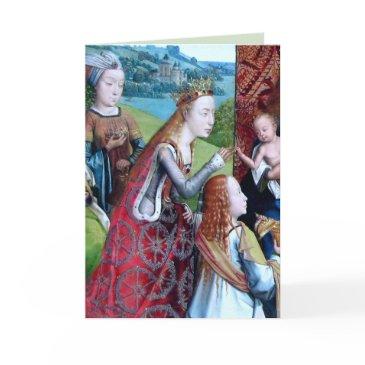Ss. Apollonia And Lucy (with St. Ursula) Invitations
$4.00 per Invitation
Get it for only $$2.40 per invitation Learn How
Get 40% Off
You can save as much as 50% on your invitations
| Order | Save | New Price |
|---|---|---|
| 25+ Invitations | 15% | $$3.40 Per Invitation ($$0.60 Off) |
| 50+ Invitations | 25% | $$3.00 Per Invitation ($$1.00 Off) |
| 100+ Invitations | 40% | $$2.40 Per Invitation ($$1.60 Off) |
| 250+ Invitations | 45% | $$2.20 Per Invitation ($$1.80 Off) |
| 1000+ Invitations | 50% | $$2.00 Per Invitation ($$2.00 Off) |
Left to right: Here, St. Apollonia of Alexandria (died c. 249) wears a simple pearl-encrusted diadem and a form-fitting white gown with pleated bodice that is lined throughout with gray fur. In her upraised hand, she holds a single tooth grasped in pincers, an allusion to the tortures she endured having all her teeth knocked or pulled out that resulted in her being named patron saint of dentistry. + Feast: February 9 + Next to St. Apollonia sits St. Lucy of Syracuse (died c. 304) clad in a form-fitting, bright yellow-green dress and white mantle. St. Lucy is invoked on all matters pertaining to the eyes, from sore ones to blindness. Two versions of the origin tale of this patronage exist. In one, she gouges out her own eyes because a suitor found them pretty; in the other, they are gouged out prior to her execution as an act of torture. Regardless, those are her eyeballs on the golden plate she holds on her lap. + Feast: December 13 + Below: St. Ursula reading. For additional information about St. Ursula, please see either her individual greeting card or Christmas ornaments. + Feast: October 21 + Image Credit (M 070): Detail of Virgo inter Virgines [in Latin; La Vierge parmi les vierges in French; The Virgin among Virgins in English], by The Master of the Legend of St. Lucy (fl. c. 1435-1506/1509), oil on oak panel, "" (171 cm x 108 cm), c. 1488, Royal Museums of Fine Arts of Belgium, Brussels, inv. 2576. From Wikimedia Commons {PD-Art|PD-Old-100}. The image file has been identified as being free of known restrictions under copyright law, including all related and neighboring rights.

